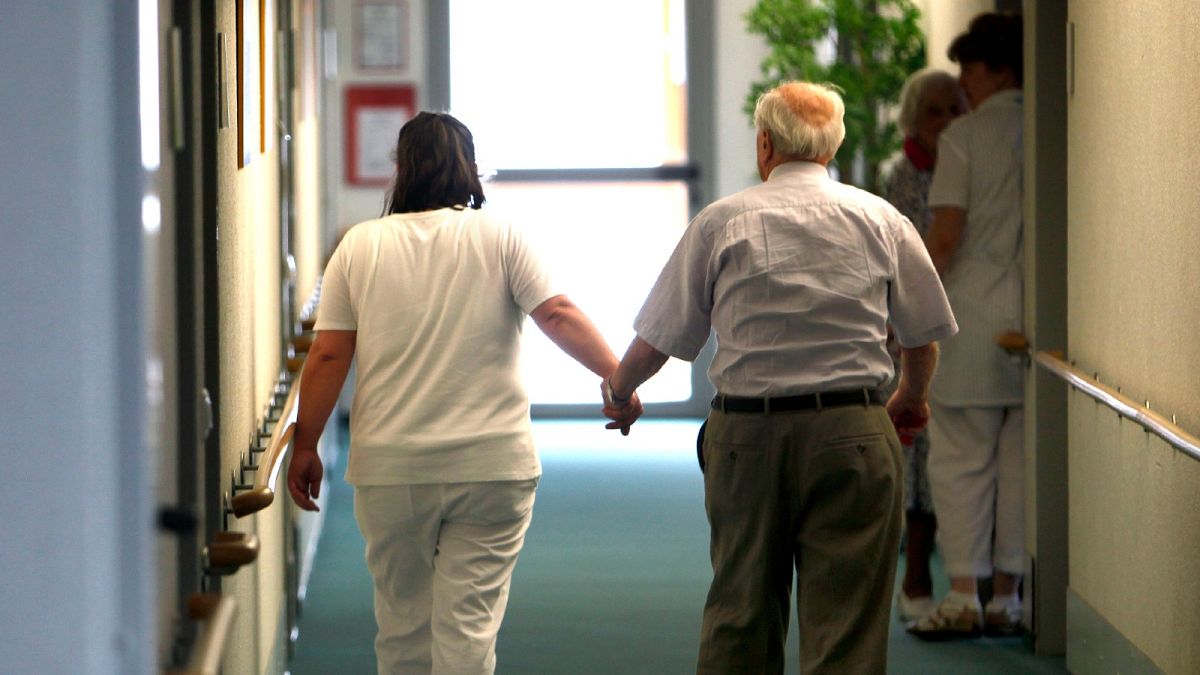The opposition bloc says the mandate should be suspended nationwide “until central legal and practical questions are answered”.
Germany's health minister has rejected calls to suspend the implementation of a COVID-19 vaccination mandate for health workers, saying this would send a dangerous signal that authorities are caving to anti-vaccine protests.
Parliament in December approved the legislation that will require staff at hospitals and nursing homes to get immunised against the coronavirus, with the main centre-right opposition Union bloc among those supporting it.
Under the new law, those workers will need to show they are fully vaccinated or have recovered from COVID-19 by mid-March.
But in recent weeks, some local officials have complained that they lack the resources to implement it and the rules are unclear.
On Monday, Bavaria's conservative governor said he plans not to implement the requirement at least for now, citing concerns about worker shortages.
The Union bloc's health policy spokesman, Tino Sorge, told Tuesday's edition of the daily Bild the federal government should accept the new rules are “barely practicable at the moment.”
He argued that the mandate should be suspended nationwide “until central legal and practical questions are answered.”
Health Minister Karl Lauterbach told reporters that the opposition's stance was “very problematic" and noted that the aim was to protect vulnerable patients, not harass medical staff.
“This sends a signal as if protests against the facility-specific vaccination mandate were more important to us — that we want to prevent these protests — than protecting these (vulnerable) people,” Lauterbach said.
The minister added that authorities have for months expected the population to go along with well-founded coronavirus restrictions, and it's “a very dangerous signal” for governors to suggest that rules don't apply to them. Under German law, it is up to state governments to implement the rules.
He said he hopes to find a solution and will continue to work on “instruments with which we can support implementation” of the mandate. Lauterbach warned that it's wrong to assume the omicron variant, which is highly contagious but generally causes milder illness than earlier variants, makes the rules superfluous.
Prospects for a broader vaccine mandate for all adults or older age groups are uncertain.
Chancellor Olaf Scholz has backed a universal mandate but, with his own governing coalition divided, has left it to parliament to put forward proposals. It's unclear whether and when a decision will be made.
Germany is still seeing its infection rates rise to record levels, but the current Omicron-fuelled wave is expected to peak in mid-to-late February. Officials say they are working on plans to relax restrictions, which remain stricter in Germany than in several other European countries, once infections subside.
Amid increasing calls from centre-right politicians in particular for rules to be relaxed, Lauterbach said now isn't the time.
“We cannot justify broad loosening at the moment,” he said. “We have 100 to 150 deaths every day, far too many ... if there were a quick opening now, we would significantly lengthen the wave.”
